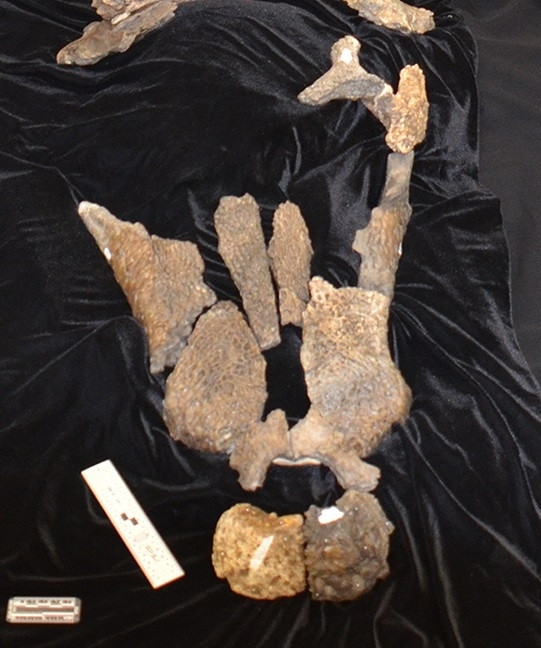New species of ferocious 20ft crocodile discovered in 95-million-year-old fossil
The fearsome crocodile lived among the dinosaurs during the Cretaceous Period.
A huge crocodile relative from the Cretaceous Period is an entirely new species, scientists have said. The beast was 20ft long and roamed what is now the southern US at the time of T. rex.
The fossil was first discovered in Arlington, Texas, by local Austin Motheral, who was 15 at the time. A group of amateur fossil hunters and volunteers, working with palaeontologists at the University of Tennessee at Knoxville, then worked for 10 years to excavate the bones.
Now the fossil has been retrieved, it has been identified as a previously unknown species of crocodile, which has been dubbed Deltasuchus motherali, after its discoverer.
The creature lived about 95 million years ago. During this time, Texas was mostly covered by a shallow sea. The Dallas-Fort Worth area, where the fossil was found, was part of a peninsula. This area was rich in biodiversity, home to dinosaurs, crocodiles, turtles, mammals, amphibians, fish, invertebrates and plants.
Despite the known diversity of species in the region, fossils from this period don't come along all that often. "We simply don't have that many North American fossils from the middle of the Cretaceous, the last period of the age of dinosaurs, and the eastern half of the continent is particularly poorly understood," Drumheller-Horton said.
"Fossils from the Arlington Archosaur Site are helping fill in this gap, and Deltasuchus is only the first of several new species to be reported from the locality."
It has been a race to excavate fossils before the area is built up. The site where Deltasuchus motherali was found is now the heart of the Dallas-Fort Worth Metroplex.
Scientists and amateur fossil hunters are hoping to dig as much as they can for these unique fossils before they become inaccessible.
The research is published in the Journal of Vertebrate Paleontology.

© Copyright IBTimes 2025. All rights reserved.






















